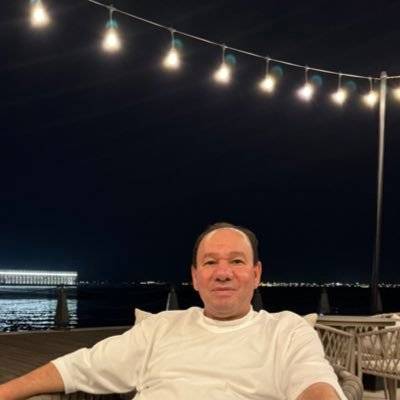Egyptians are up in arms about actor and singer Mohamed Ramadan being photographed at a party in the UAE with Israeli celebrities. Israel and the UAE are all the rage these days, and he was just being used as part of a normalisation carnival. The simple fact is that there are far more dangerous people, normalisers to the core, than actors who party with Israelis.
Why, for example, are the same Egyptians who are so upset about Mohamed Ramadan apparently happy to turn a blind eye to former interim Vice President Mohamed ElBaradei and his meetings with Israeli politicians? And ignore so-called intellectuals such as Youssef Ziedan and Osama Al-Ghazali Harb when they do similar things?
If we really are against normalisation, then condemning it is obligatory, no matter who is involved, where it happens or what its context. We can’t beat the “illiterate actor” but praise the “intellectuals”.
In my opinion, seeing ElBaradei smiling alongside the war criminal Ehud Barak at the Richmond Forum in the US three years ago was much worse — and much more serious — than seeing Ramadan alongside an Israeli singer at an Abu Dhabi government event organised as part of the UAE project to serve the Zionist project in the region.
Mohamed Ramadan is someone who embodies the cultural and political illiteracy so prevalent today, but he has never claimed to be a popular leader, an icon of a political struggle, or a revolutionary leader. He is merely an expression of the vulgarity created deliberately by the current regime in Cairo. The same regime allowed him to be used in this way because of its full commitment to whatever the UAE and Israel want.
READ: Reasons for Gulf normalisation with Israel
Moreover, Ramadan does not belong to a political or revolutionary movement whose members hang on his every word. ElBaradei, however, has an army of followers who take everything he says and does as revolutionary inspiration and do not tolerate him being criticised, let alone be asked to apologise for the shameful footage of him at that Forum with the most brutal Israeli war criminals. That’s the sort of image that creates the space for a thousand Mohamed Ramadans, because it is part of the foundation of normalisation with the Zionist state.
No less dangerous in promoting normalisation is what the academic and novelist Youssef Ziedan does. His fiction shifts concepts, dissolves beliefs and destroys popular immunity against acceptance of the Zionist enemy as a natural partner. If what Ramadan did was a sin, then what Ziedan does is a crime, as he presents a cultural proposition that the Zionist media has been unable to put together, in which he de-sanctifies Jerusalem in the eyes of the Arab people until they get to the stage of regarding the opponents of normalisation as ignorant saboteurs. As far as he is concerned, to reject normalisation is to accept irregularity in life. “Why no normalisation?” he asked on TV in 2016. “Should we say yes to irregularity?”
The educated Ziedan is thus the same as the actor Ramadan, in that both are aligned completely with the approach of the Egyptian regime, which came to power in a coup that was a great boost to Israel. This is the regime that feels so indebted to the colonial state — inexplicably so — that it sent its Ambassador in Israel to participate in the festival promoting Israeli companies based on illegal settlements to confront the Boycott, Divestment and Sanctions (BDS) movement started by the Palestinians and which is now growing all over the world.
What Mohamed Ramadan did is nothing compared with what the de facto ruler of Saudi Arabia, Crown Prince Mohammad Bin Salman and others in the region are doing both openly and behind closed doors in the service of the Zionist dream to lead the Arab world. In short, Ramadan is simply following the way of the Egyptian regime since the 1980s which many before him have followed; and he won’t be the last. Throw social media barbs at this simple actor if you like, but reserve some for those who deserve your anger even more.
This article first appeared in Arabic in Al-Araby Al-Jadeed on 25 November 2020
The views expressed in this article belong to the author and do not necessarily reflect the editorial policy of Middle East Monitor.

![A man holds a phone showing a picture of Egypt's self-proclaimed "superstar" Mohamed Ramadan posted by the official Facebook page of the State of Israel in Arabic (linked to the foreign ministry) depicting Ramadan (R) hugging Israeli midfielder Dia Saba in Dubai on 22 November 2020 [KHALED DESOUKI/AFP via Getty Images]](https://i0.wp.com/www.middleeastmonitor.com/wp-content/uploads/2020/11/GettyImages-1229737218.jpg?fit=920%2C613&ssl=1)







